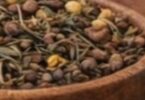Have you ever wondered if nature holds the key to better gut health? Parasitic infections, though often overlooked, can cause discomfort and fatigue, leaving many searching for safe, natural solutions. While claims like “Big Pharma banned this herb” may grab attention, the truth about herbs and their potential to support a healthy digestive system is far more nuanced. Let’s dive into what science says about herbs that may help combat parasites, how they work, and how to use them wisely to support your wellness journey.
What Are Parasites and Why Do They Matter?Parasites are organisms that live in or on a host, sometimes causing health issues. In the U.S., common intestinal parasites like pinworms or giardia can lead to symptoms such as bloating, diarrhea, or fatigue, according to the Centers for Disease Control and Prevention (CDC). While parasitic infections are more prevalent in developing countries, they’re not uncommon in America, especially among those who travel, eat undercooked foods, or have weakened immune systems.
The idea that “Big Pharma” suppresses natural remedies often stems from skepticism about synthetic drugs. However, the reality is that many pharmaceutical treatments, like antiparasitic medications, are rigorously tested for safety and efficacy. Still, herbs have been used for centuries in traditional medicine, and modern research is uncovering their potential benefits for gut health. Let’s explore some of the most promising ones.
Herbs That May Support Parasite DefenseSeveral herbs have shown promise in supporting the body’s natural defenses against parasites. While no herb can “kill parasites in hours” as some exaggerated claims suggest, research indicates certain plants may help create an inhospitable environment for parasites. Here are some evidence-based options:Black Walnut Hulls: Traditionally used for intestinal health, black walnut hulls contain juglone, a compound that may have antiparasitic properties. A 2021 article from Zuma Nutrition notes that juglone could disrupt parasite metabolism, though human studies are limited.Wormwood: Known scientifically as Artemisia absinthium, wormwood has been studied for its potential against tapeworms. A 2018 animal study found it reduced tapeworm levels similarly to some medications, but more human research is needed.Cloves: Cloves contain eugenol, which may interfere with parasite reproduction. According to a 2020 study, eugenol could prevent parasite egg hatching, supporting the body’s efforts to manage infections.Oregano: Rich in carvacrol and thymol, oregano oil has antimicrobial and antiparasitic effects. A 2018 study in the Iranian Journal of Parasitology found oregano extract reduced Giardia cysts in vitro, suggesting potential benefits.Garlic: Garlic’s sulfur compounds, like allicin, have shown antiparasitic effects in lab studies. A 2020 review in Antioxidants highlighted garlic’s ability to inhibit parasite growth, making it a popular While these herbs are promising, they’re not a replacement for medical treatment. Always consult a healthcare provider before starting any herbal regimen, especially if you suspect a parasitic infection.
How to Use Herbs Safely for Gut HealthIncorporating herbs into your routine requires caution to avoid side effects or interactions with medications. Here’s how to approach herbal remedies responsibly:Consult a Professional: Speak with a doctor or naturopath to confirm whether you have a parasitic infection. Self-diagnosing can lead to unnecessary treatments or delays in care.Choose Quality Supplements: Look for third-party-tested products from reputable brands, as the FDA doesn’t regulate supplements. Certifications from NSF International or USP ensure purity and potency.Start Small: Begin with low doses to see how your body reacts. For example, oregano oil can be taken in capsule form, starting at 100 mg daily, as advised by a healthcare provider.Pair with a Healthy Diet: A whole-foods diet rich in fiber, fruits, and vegetables supports gut health and may help your body expel parasites naturally. Avoid sugary or processed foods, which can feed harmful organisms.Monitor for Side Effects: Herbs like wormwood can cause nausea or dizziness in high doses. Stop use and seek medical advice if you experience unusual symptoms.By taking these steps, you can explore natural remedies while prioritizing safety. Share this tip with a friend who’s curious about herbal health!
The Role of Diet in Parasite PreventionA balanced diet is your first line of defense against parasitic infections. According to Harvard Health, a strong immune system and healthy gut microbiome can reduce the risk of infections. Here are some dietary tips to support your body:Eat Probiotic-Rich Foods: Yogurt, kefir, and sauerkraut promote healthy gut bacteria, which may help fight parasites. A 2024 review suggested probiotics could reduce the severity of some infections.Include Antiparasitic Foods: Foods like pumpkin seeds, papaya, and pineapple contain enzymes or compounds that may deter parasites. For example, papaya seeds have papain, which a study in Kenya showed helped reduce worm loads in children.Stay Hydrated: Proper hydration supports digestion and helps flush toxins from your body, reducing the risk of parasitic buildup.Avoid Risky Foods: Undercooked pork, raw fish, or contaminated water can introduce parasites. Cook meat to safe temperatures and drink filtered water, especially when traveling.By focusing on these habits, you can create an environment where parasites are less likely to thrive. Explore more gut health tips on our site to keep your wellness on track!
Debunking Myths About “Banned” HerbsThe claim that “Big Pharma banned this herb” often circulates online, but it’s largely a myth. Herbs like black walnut, wormwood, or cloves are widely available in health food stores and online. Regulatory bodies like the FDA don’t ban herbs unless there’s evidence of harm, such as contamination or dangerous side effects. For example, the FDA has issued warnings about certain herbal supplements due to mislabeling or unlisted ingredients, not because they threaten pharmaceutical profits.Conspiracy theories about suppressed natural remedies can oversimplify complex issues. Developing antiparasitic drugs is costly, and pharmaceutical companies focus on treatments with proven efficacy. Meanwhile, herbs often lack large-scale clinical trials due to funding challenges, not corporate conspiracies. A 2023 article from McGill University’s Office for Science and Society emphasizes that while some criticisms of the pharmaceutical industry are valid, claims of suppressed cures are often exaggerated.Instead of falling for sensational headlines, focus on evidence-based practices. Combining herbal remedies with medical advice ensures you’re making informed choices for your health.When to Seek Medical HelpWhile herbs and diet can support gut health, parasitic infections sometimes require professional treatment. According to the Mayo Clinic, symptoms like persistent diarrhea, abdominal pain, or unexplained weight loss warrant a doctor’s visit. Diagnostic tests, such as stool samples, can confirm the presence of parasites and guide treatment.Prescription medications like metronidazole or mebendazole are often effective and safe when used under medical supervision. In some cases, combining these with natural approaches, like dietary changes, can enhance recovery. Never rely solely on herbs for severe infections, as delays in treatment could lead to complications.Comment below with your favorite natural health tip, or share this article with someone who might benefit from it!ConclusionHerbs like black walnut, wormwood, and cloves offer exciting possibilities for supporting gut health and potentially combating parasites. While they’re not miracle cures, their traditional use and emerging research make them worth exploring with caution. By pairing these remedies with a healthy diet, safe supplementation, and medical guidance, you can take charge of your wellness naturally. Always prioritize evidence-based choices and consult a healthcare provider to ensure you’re on the right path. Your gut will thank you for it!*Disclaimer: This article is for informational purposes only and does not substitute professional medical advice. Consult your doctor before making health changes







